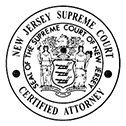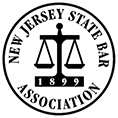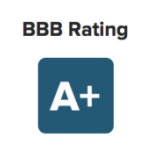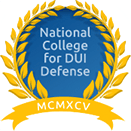Kenilworth NJ First Offense DWI Defense Lawyers
For most people, a Kenilworth New Jersey DWI charge is their first experience with the courts and the criminal justice system, and it can be a terrifying one. New Jersey has taken a tough stand against motorists who drive while under the influence of alcohol or drugs with extreme penalties and life-altering consequences for those convicted of a DWI charge. For example, the driver’s license of a convicted motorist is suspended upon conviction, but unlike 30 other states, New Jersey does not grant a restricted or hardship license allowing the person to at least drive to work. If your license is suspended in New Jersey, you could lose your job unless there is another transportation option available to you. This is good reason for you to make certain that you hire the very best lawyer to defend your case whether its a first offense or you are a repeat offender facing a third offense or more.
Avoiding a conviction following an arrest for DWI is not easy to do, but a Kenilworth DWI attorney from the Law Offices of Jonathan F. Marshall has the experience, courtroom skills and extensive knowledge of the law to give you the highest probability of success. Our DWI defense team is composed of criminal defense veterans and former prosecutors with more than 100 years of collective experience in the municipal and superior courts throughout the state as defense attorneys and prosecutors handling DWI cases. Some of our attorneys are certified as instructors in field sobriety testing and hold certifications in the operation of the Alcotest device routinely used in the state to measure driver blood alcohol concentration levels. Because you never know when you’ll need us, an attorney is available to help you 24 hours a day and seven days a week by calling (908) 272-1700 for a free initial consultation.
DWI Offense in Kenilworth New Jersey
According to state law, you are intoxicated if your blood alcohol concentration is 0.08 percent or more. You cannot tell from the number of drinks or the type of alcoholic beverage you consumed whether you are legally intoxicated. The rate at which each person’s body processes alcohol can vary depending upon weight and even gender. Operating a motor vehicle while under the influence of either alcohol or drugs violates N.J.S.A. 39:4-50.
Having a few drinks at dinner can affect your reflexes, coordination and judgment. A driver under the influence of alcohol might experience any of the following: Reduced eye movement Delayed reaction time Difficulty steering Inability to process information Motorists driving under the influence usually draw the attention of police by committing a traffic violation, such as speeding or driving too slow, failing to stay in lane, or failing to stop at traffic lights or stop signs. Police are trained to look for signs of intoxication, including the following:
- Glassy or watery eyes
- Flushed face
- Dazed look
- Disheveled clothing
- Slurred speech
- Difficulty responding to questions
- Noticeable odor of alcohol
Observations leading an officer to believe you have been drinking are usually followed by a request that you perform a series of three field sobriety tests developed by the National Highway Traffic Safety Administration. The tests include: Horizontal gaze nystagmus or HGN test: HGN is an involuntary jerking motion of the pupils that is exaggerated in a person under the influence of alcohol. An officer administering this test asks the driver to follow a slowly moving object, such as a pen, using only the movement of the eyes. Walk and turn test: A person suspected of DWI is asked to walk with a heel-to-toe movement along a straight line. After completion of nine steps, the person must turn on one foot and continue back in the same manner. The officer looks for balance difficulties, difficulty turning or inability to count the correct number of steps. One-leg stand test: The person suspected of DWI must raise one foot off the ground while counting for approximately 30 seconds. Swaying, use of the arms for balance and allowing the raised foot to touch the ground are considered to be signs of impairment.
Our DWI defense lawyers know that field sobriety tests must be administered according to a specific protocol to avoid false indications of intoxication, so they carefully review the actions of the police officer to challenge the testing results.
Kenilworth DWI Penalties for a First Offense
The penalties judges may impose for a first offense in Kenilworth or another municipality in Union County hinge on the BAC level at the time of the violation. If the BAC is at least .08% but less than .10%, the penalties include:
- Confinement in the Union County jail for up to 30 days
- Suspension of your driver’s license 90 days
- $250 minimum and $400 maximum fine
- IDRC participation for 12 to 48 hours
- $1,000 annual surcharge for three years
If your BAC is 0.10 percent or more, the license suspension is for a minimum of seven months, but judges can increase it to up to one year. The fines increase to a $300 minimum up to a maximum fine of $500. If your BAC is 0.15 percent or more, you must install an ignition interlock device on your vehicle for six months to one year. The device prevents your vehicle from starting if it detects alcohol on your breath when you blow into it. All of these consequences escalate rapidly for a second offense or third offense of DWI.
Kenilworth NJ DWI Defense Lawyer
At the Law Offices of Jonathan F. Marshall, a skilled Kenilworth DWI attorney focused on an aggressive defense strategy can make a difference in how your case is resolved. We are client- oriented with a proven record of success defending DWI charges. When you need a DWI lawyer, there is always one available, 24 hours a day and seven days a week, by calling (908) 272-1700 for a free initial consultation.












